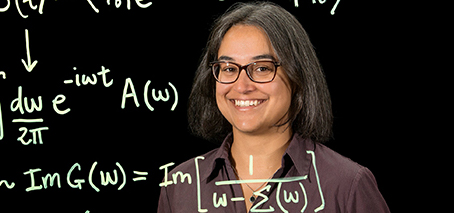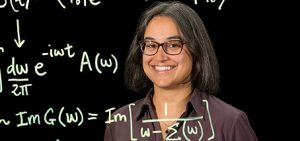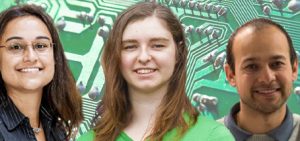Congratulations to FLEET CI A/Prof Meera Parish who received an ARC Future Fellowship in this week’s announcement.
“The revolution in electronics and the Information Age were enabled by powerful theories based on the concept of the quasiparticle, an object composed of many particles such as electrons,” writes A/Prof Parish.
The new ARC Fellowship will support Meera’s work to unravel the behaviour of new, complex quantum materials by investigating the nature of quasiparticles beyond the current paradigm.
The key innovation is the use of trapped atoms, which allows new quantum theories and computational tools to be developed and precisely tested.
The new knowledge generated by the Fellowship will advance a range of fields, including condensed-matter physics, and could ultimately underpin a new generation of quantum devices featuring robust data memories, where information can be efficiently stored and extracted.
A/Prof Meera Parish is a theoretical physicist investigating and mathematically describing the behaviour of large groups of interacting quantum particles, such as atoms or electrons, which can exhibit exotic behaviour, such as superfluidity where they flow without encountering resistance.
A/Prof Parish is the leading current researcher studying how such complex collective behaviour emerges from the properties of small groups of quantum particles (a field known as few-body systems).
WIthin FLEET, Meera develops many-body theories that span electron-hole systems and ultracold atomic gases. In Research Theme 2, she investigates the fundamental properties of exciton-polariton condensates, while in Research Theme 3, she studies quantum systems out of equilibrium, such as coupled kicked rotors.
Future Fellowships reflect the Australian Government’s commitment to excellence in research by supporting excellent mid-career researchers to undertake high-quality research in areas of national and international benefit.
Minister for Education Dan Tehan on Wednesday announced the 2020 100 Future Fellows who will share $90.5 million to conduct their research, towards “turning ideas into jobs, productivity gains and economic growth,” and leading to “commercial, economic, environmental, social and cultural benefits for the nation and the world”.





